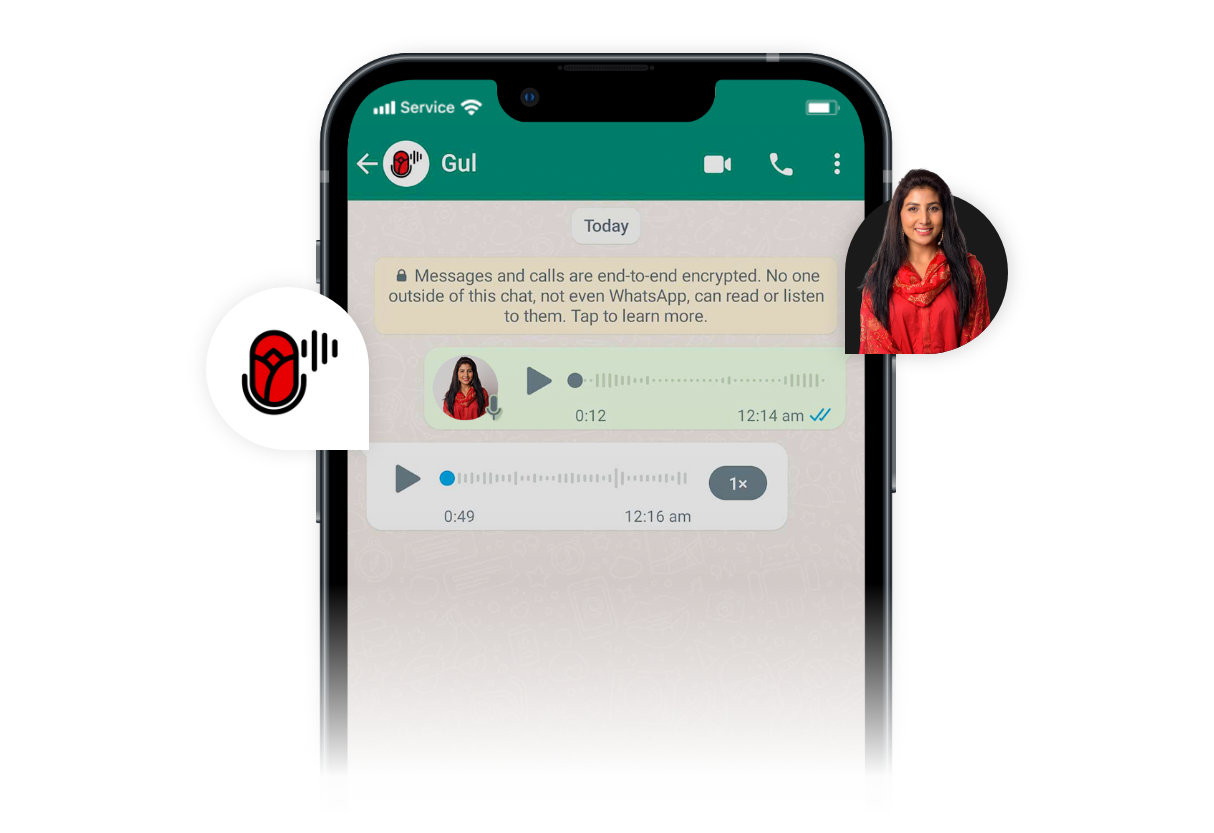Climate Justice
The communities we work with were among the most affected during the 2022 floods and continue to face high risks of climate disasters. Our efforts over the previous years have focused on the intersection of climate, gender, and SRHR. Here are some of our key activities under this thematic area:
Dignity for Women during Climate Crisis
Our campaign has provided vital resources to women and girls in crisis. We’ve distributed menstrual, pregnancy, and safety kits to over 10,000 women affected by the 2022 floods in Pakistan, over 100 women affected by the 2023 earthquake in Turkey, and more than 3,000 women affected by the 2024 floods in Gwadar. During our campaign, we identified significant challenges faced by women in IDP camps, such as the lack of WASH facilities and privacy. To address these issues, we provided disposable sanitary pads and solar-powered lamps to enhance safety for women navigating dark areas at night.
We engage in dialogues with district governments to prioritize the gender-specific needs of women and girls during climate disasters. Our advocacy led to the presentation of our recommendations at the SDGs Secretariat in Parliament and the creation of a gender-responsive contingency plan for Jamshoro district. Our goal is to ensure women have access to essential resources and support to manage their health and safety with dignity during crises.
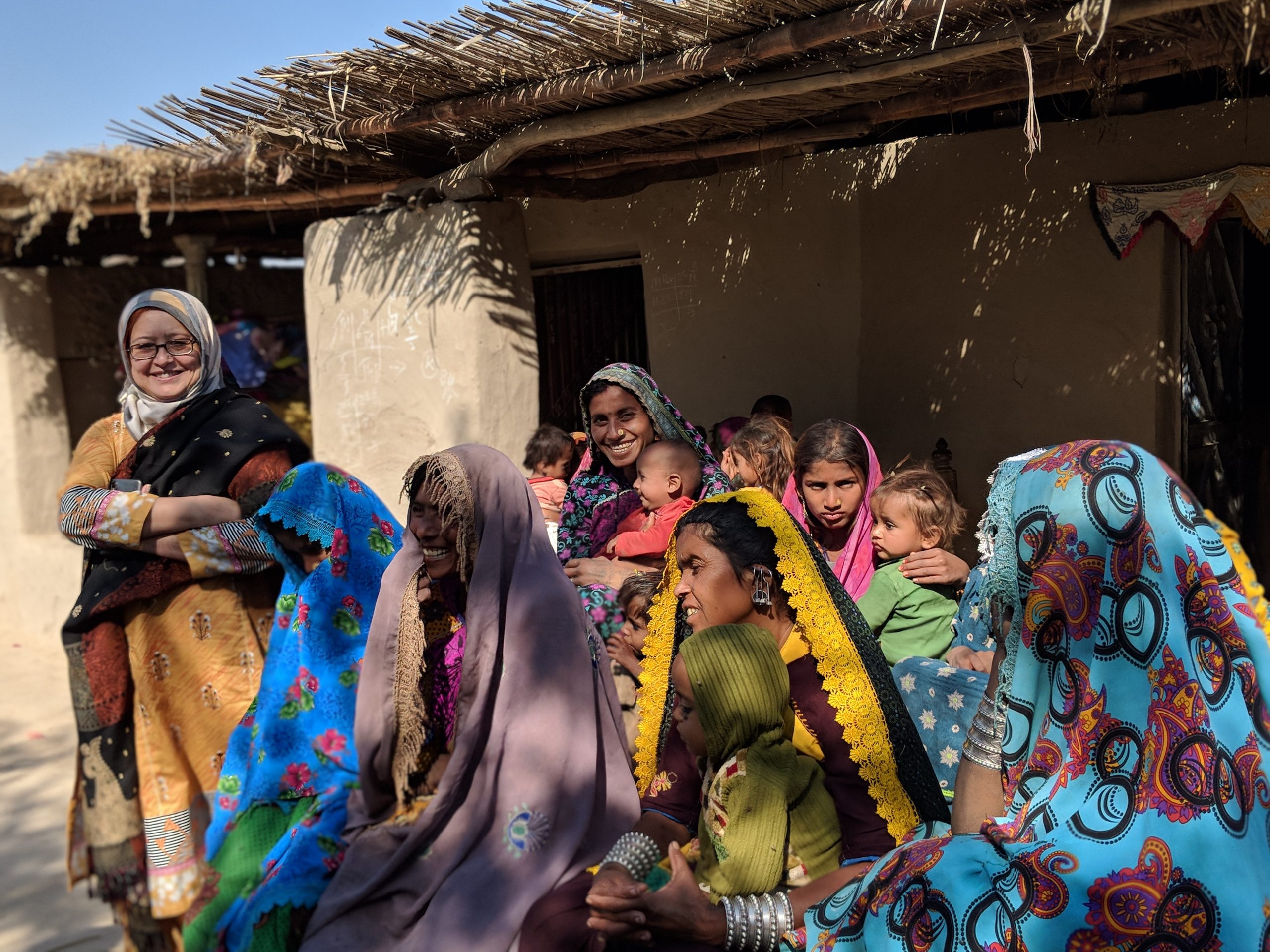
GICA - Gender Inclusive Climate Action Toolkit
Foundation, co -created the Gender Inclusive Climate Action Toolkit (GICA) that addresses the unique needs of girls and women during climate crises. This toolkit was created by consulting with 40 diverse organizations dedicated to climate crisis response and extensive dialogue with 5,000 women and girls affected by climate disaster. The toolkit stands as a testament to our commitment to inclusivity, resilience, and proactive measures in ensuring the well-being of women in the vulnerable context of climate impact. The GICA toolkit received the “Gender Just Solutions Award” at COP28 in Dubai (and hosted a virtual event on “Gender Responsive Financing for SRHR amidst Climate Crisis” at CSW69) In the process of validating the GiCA toolkit, Baithak and Dastak are training the Provincial Disaster Management Authorities (PDMAs) and District Disaster Management Authorities (DDMAs) in Pakistan on gender inclusive interventions to address climate disasters. At CSW68,
Baithak and Dastak in collaboration with WEDO and FosFeminist hosted a side event on “Gender-Responsive and Innovative Financing for SRHR amid Climate Crisis”. The event aimed to explore how gender-blind responses to climate crises worsens poverty for young girls and women, explore challenges related to poverty and the lack of gender-sensitive financing and institutional support and to bring together global leaders, CSOs/NGOs, and grassroots activists to foster inclusive dialogue to share frontline experiences. The findings were then incorporated to the GiCA toolkit.
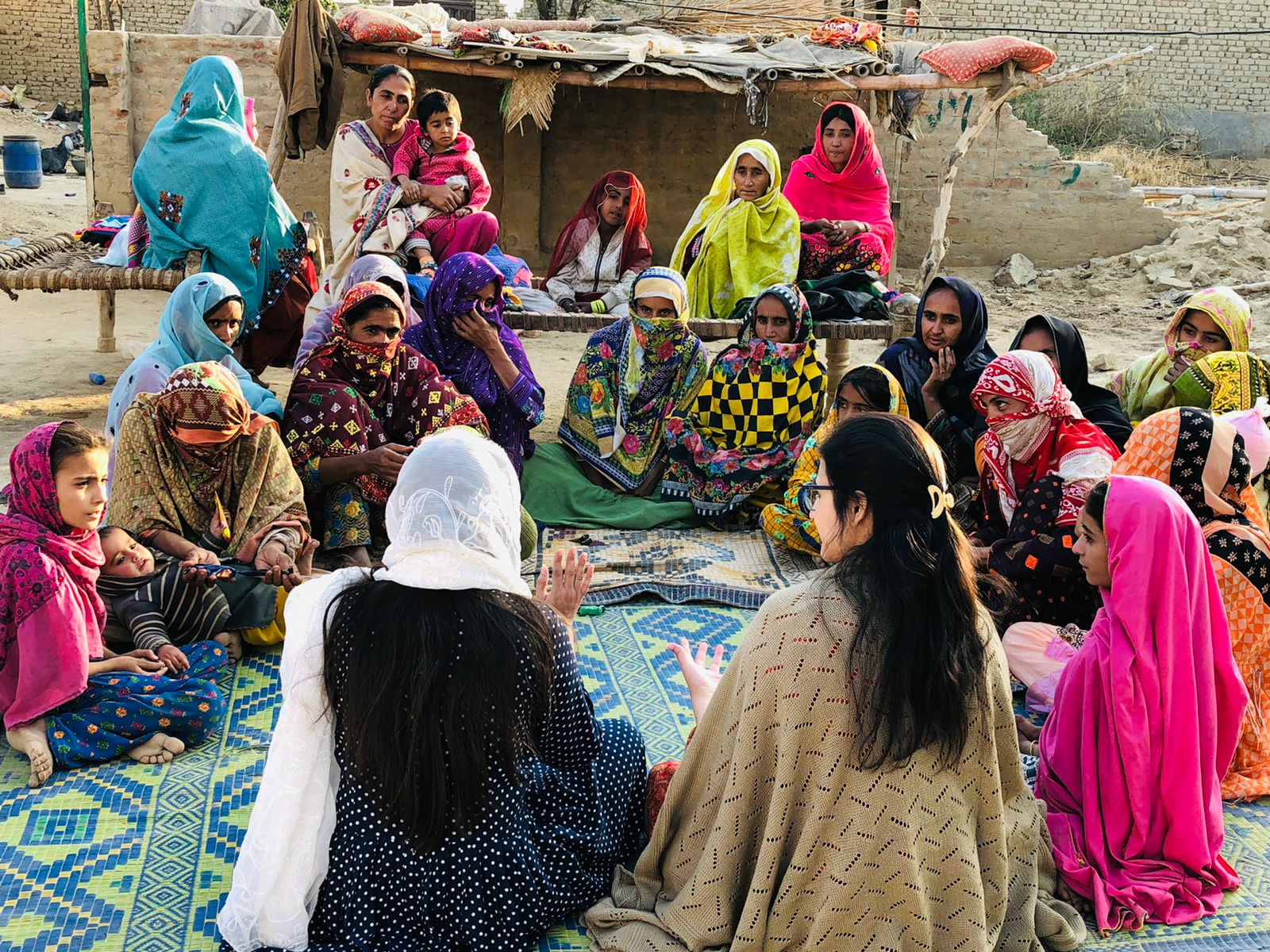
Capacity Building and Rights-based Climate Action (CRCA)
Capacity Building and Rights-based Climate Action (CRCA) is a collaborative effort of Baithak – Challenging Taboos and Dastak Foundation and it seeks to address the urgent need for gender responsive and equitable disaster management / climate crises response in Sindh and KP, Pakistan by building capacity of Provincial Disaster Management Authorities (PDMAs) and District Disaster Management Authorities (DDMAs) and strengthening their coordination with Civil Society Organizations (CSOs) in both the provinces. This project is implemented in partnership with United Stated Institute of Peace (USIP).
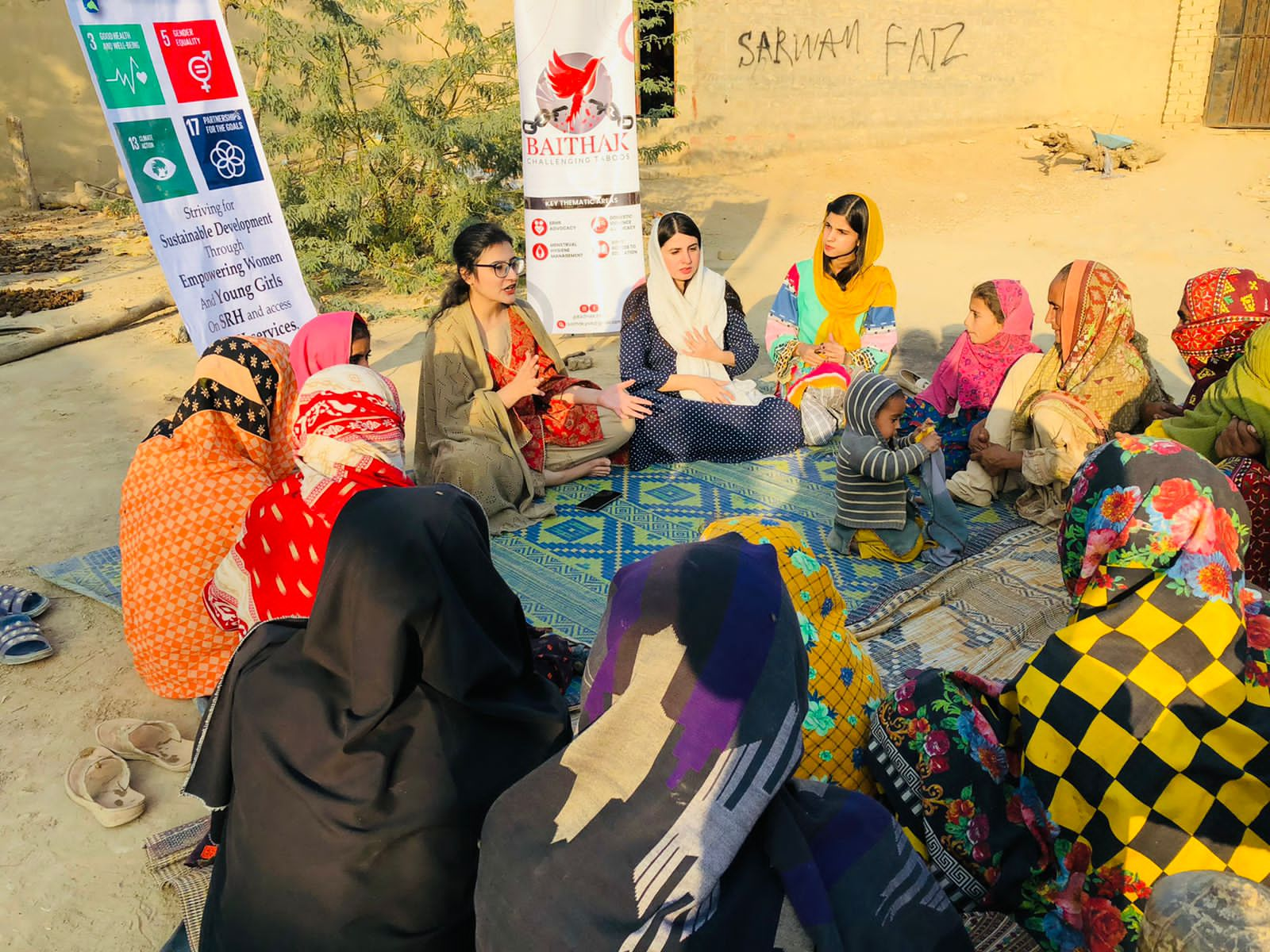
GRACE – Grassroots Resilience for Climate and Gender Equity
GRACE focuses on integrating a gender lens into climate action by building the capacity of grassroots organizations. We train organizations to better address the unique challenges faced by women related to SRHR during climate-induced disasters. This project aims to build a community of grassroots organizations advocating for the integration of SRHR in Pakistan’s climate crisis response. As part of GRACE consortium, we have trained 100+ civil society organizations to advocate for integration of SRHR in Pakistan’s climate crisis response and climate policy frameworks.
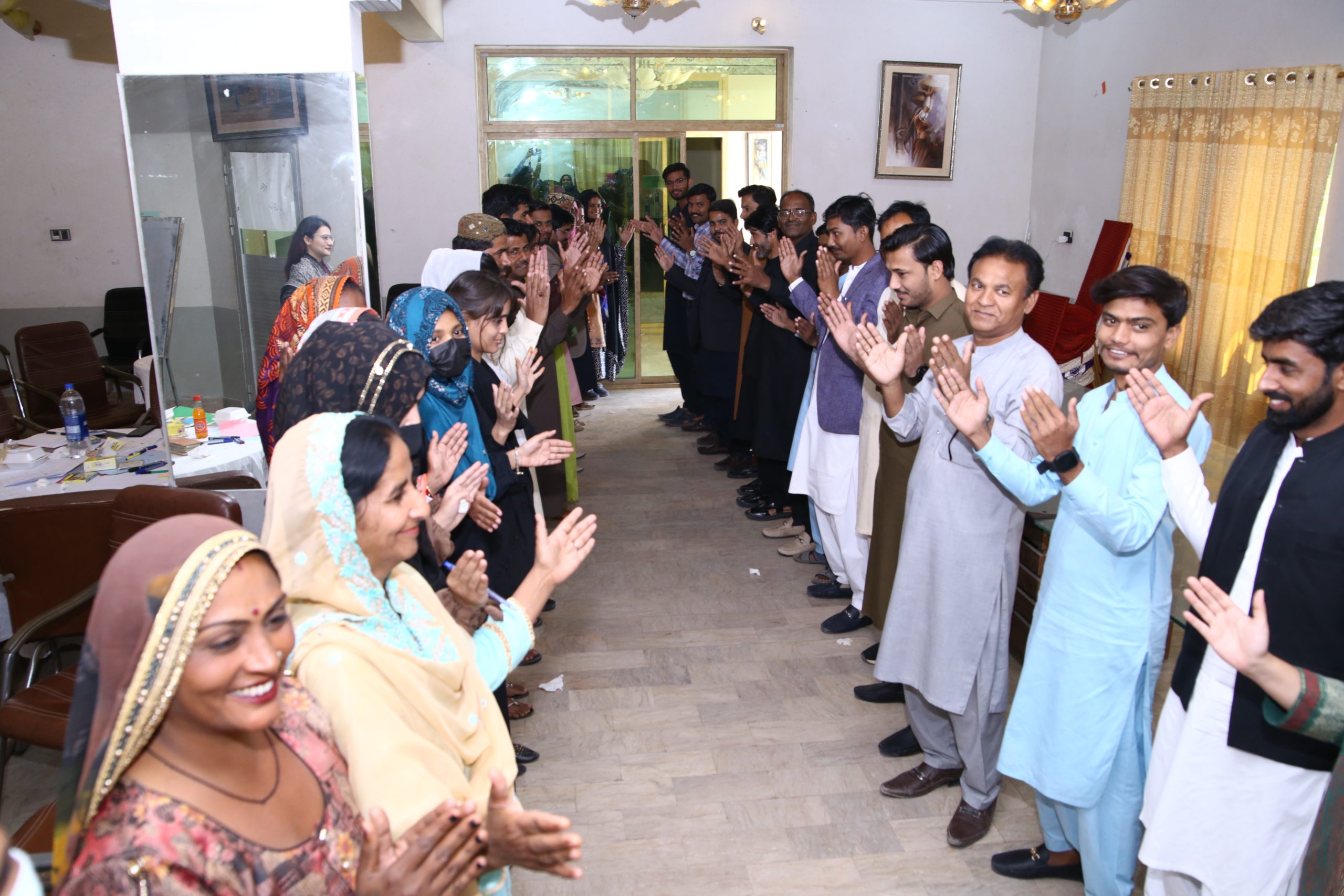
Climate and Gender Advocacy Campaign
Our active climate and gender advocacy campaign documents narratives of women’s lived experiences during the 2022 floods and mobilizes them to demand gender-equitable climate crisis responses. We conducted art sit-ins with 100 women to express their menstrual health struggles through art and documented their narratives in a documentary. As part of the Young Omang Consortium, we conducted advocacy sessions with climate migrant communities in Karachi.
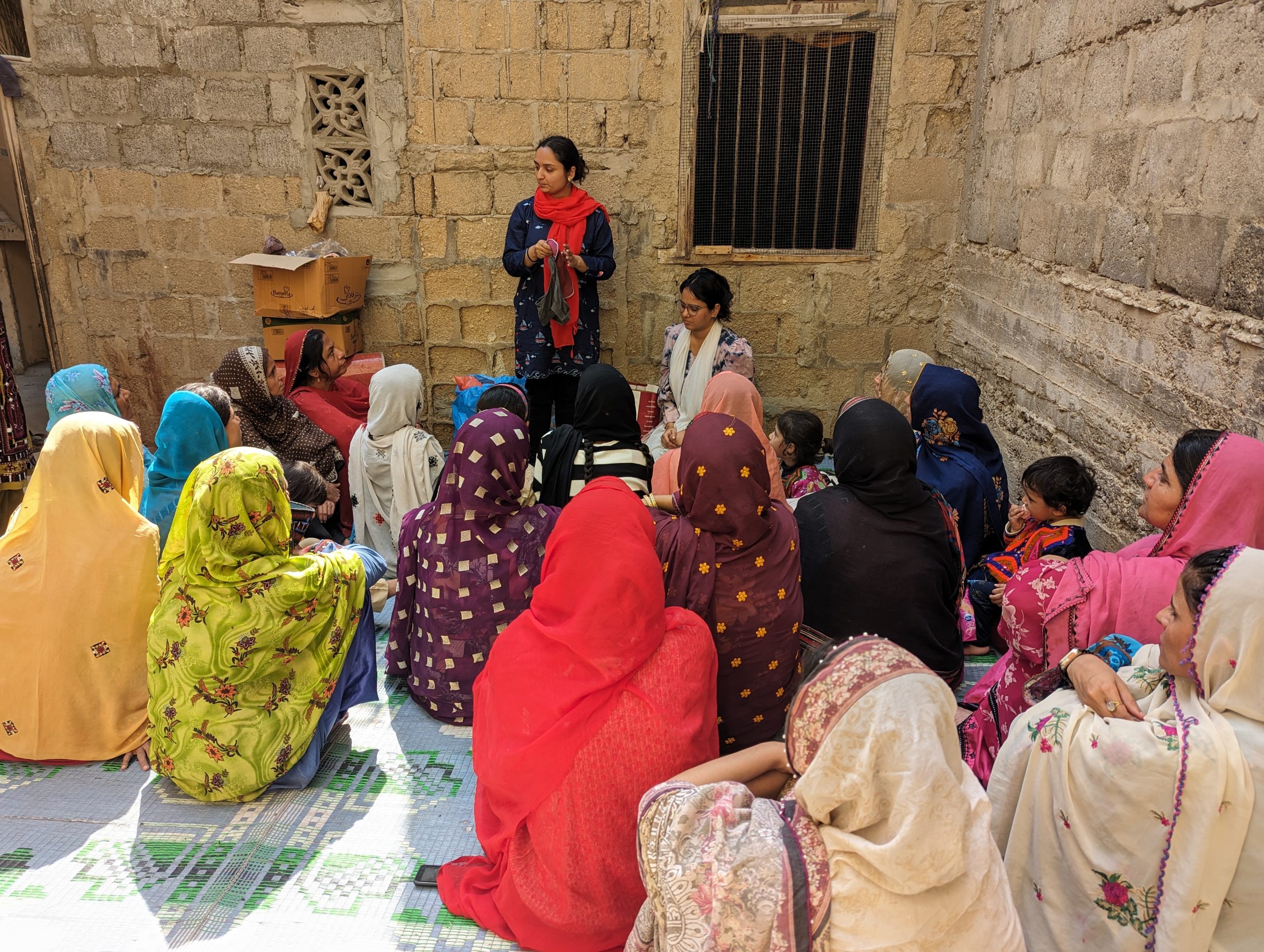
Menstrual Health Management
Menstrual Health Management and Hygiene (MHM) is one of our key thematic areas under which we conduct our community style Baithaks or “Gatherings” by creating safe spaces for girls and women to detach the societal stigma around menstruation and women’s bodies. The objective of this is to provide girls and women with knowledge, tools, and resources, to facilitate the process for them to make informed decisions about their bodily autonomy. Here are some of our activities under this thematic area:
Community Baithaks
An essential component of our grassroots interventions is mobilizing girls and women for reproductive justice through our community Baithaks or community gatherings that are safe spaces for women to reflect on and learn about their SRHR (particularly menstrual health, family planning, and early and forced marriages)
Our Baithak-style sessions have been very successful in providing girls and women access to this information. After group sessions, we conduct one-on-one sessions for whoever needs it, given that we know that young and newly married girls are not comfortable asking questions about sex or contraceptives in front of other women because of the shame and stigma. These Baithaks have helped us address issues like early marriages, early pregnancies, unintended pregnancies, reproductive coercion, and family planning—and, till date, have impacted the lives of over 360K+ girls and women across Pakistan.
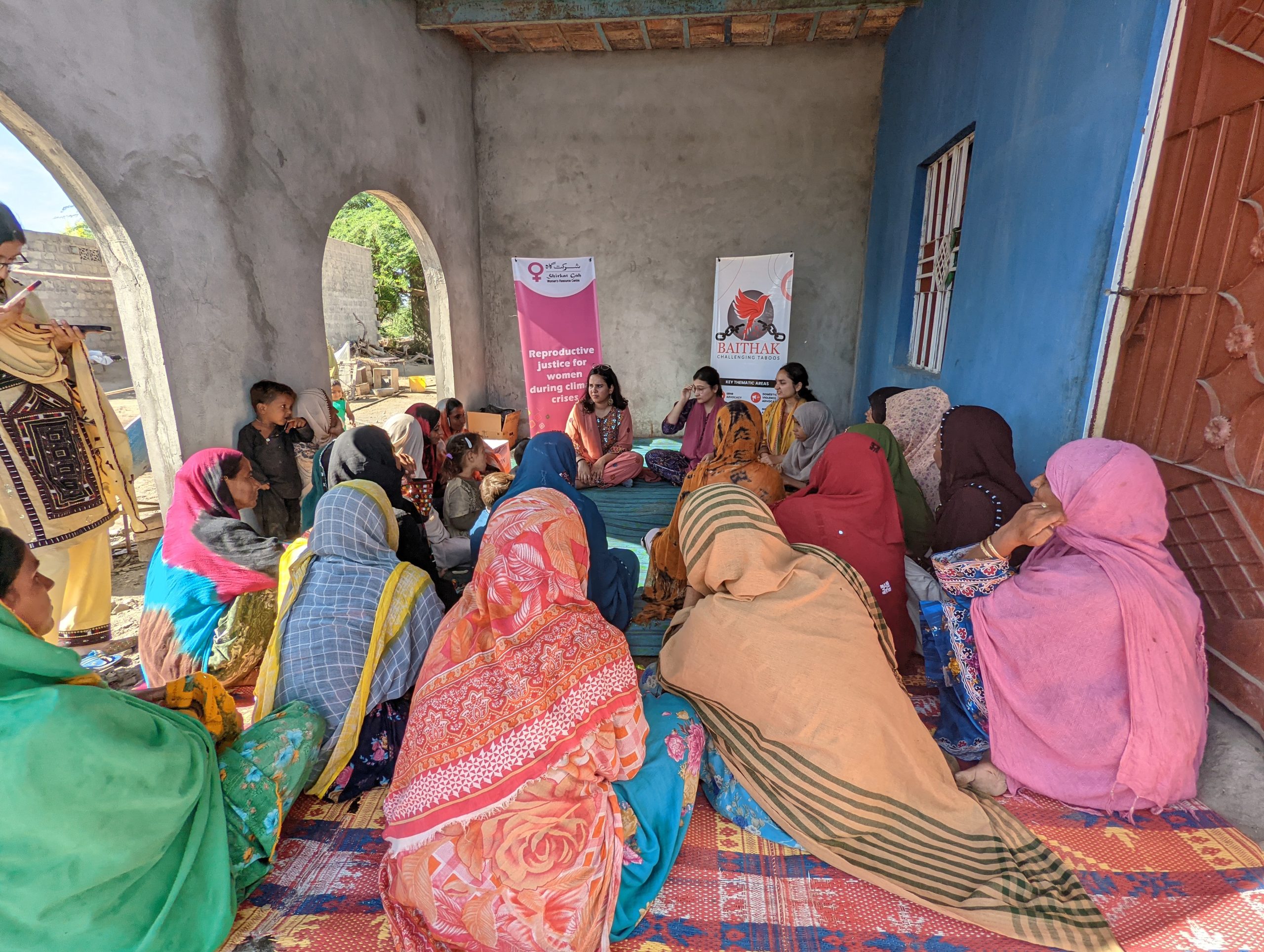
Menstruathon
The Menstruathon is a marathon event aimed at educating and empowering women and girls on menstrual and reproductive health. This program engaged over 1,000 girls and women in eight different cities and villages across Sindh over eight days, creating a total impact on 20,000 women. Through interactive sessions and activities, participants gained valuable knowledge about menstrual health, hygiene, and reproductive health.
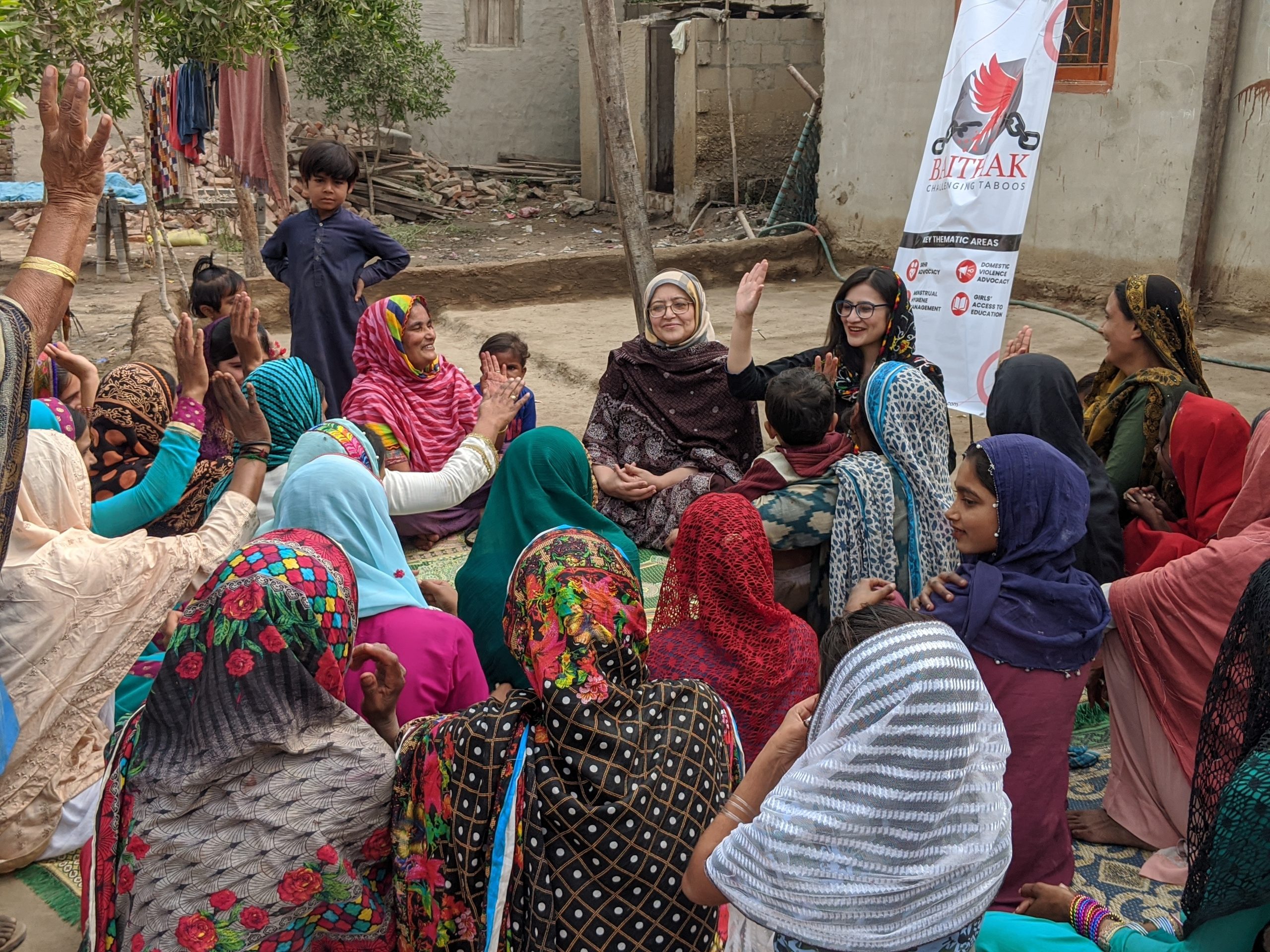
Men4Menstruation (M4M)
Men4Menstruation is a project that educates men on the basics of menstrual health and reproductive health. By developing their capacity and empowering them to take action in their communities, we aim to create a supportive environment for better MHM practices. M4M aims to equip men to advocate for safe spaces and better menstrual health management for women.
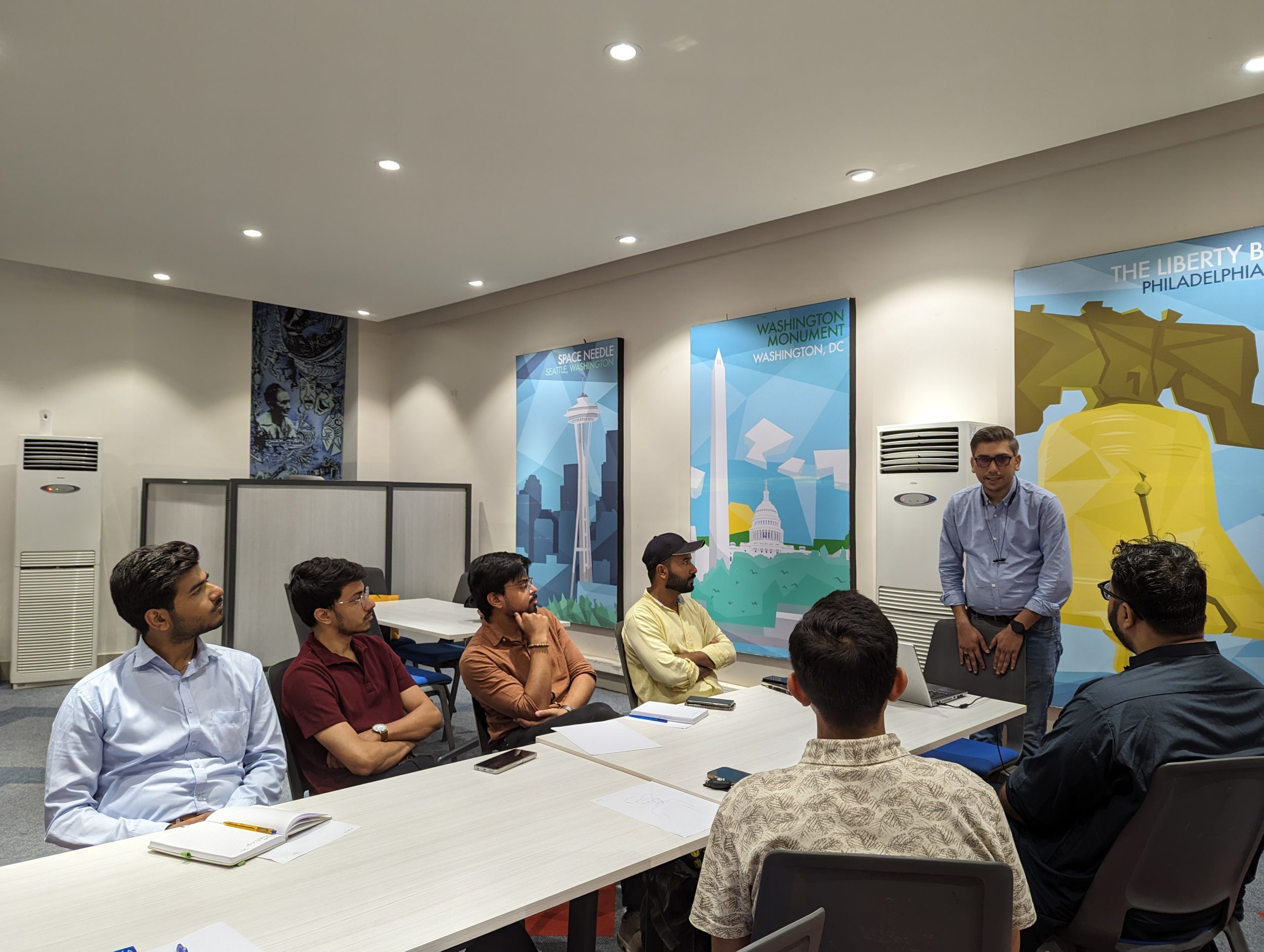
SRHR Advocacy
SRHR Advocacy Lab
SRHR Innovation Lab is our flagship initiative aimed at equipping various stakeholders including health workers, young people, and community leaders with tools, resources, knowledge, and networks to advocate for SRHR in their own communities. The goal is to build regional solidarity by providing comprehensive education and services to improve SRHR for all. The first SRHR Innovation Lab is a joint initiative in Pakistan, Kazakhstan, and Sri Lanka supported by IREX.
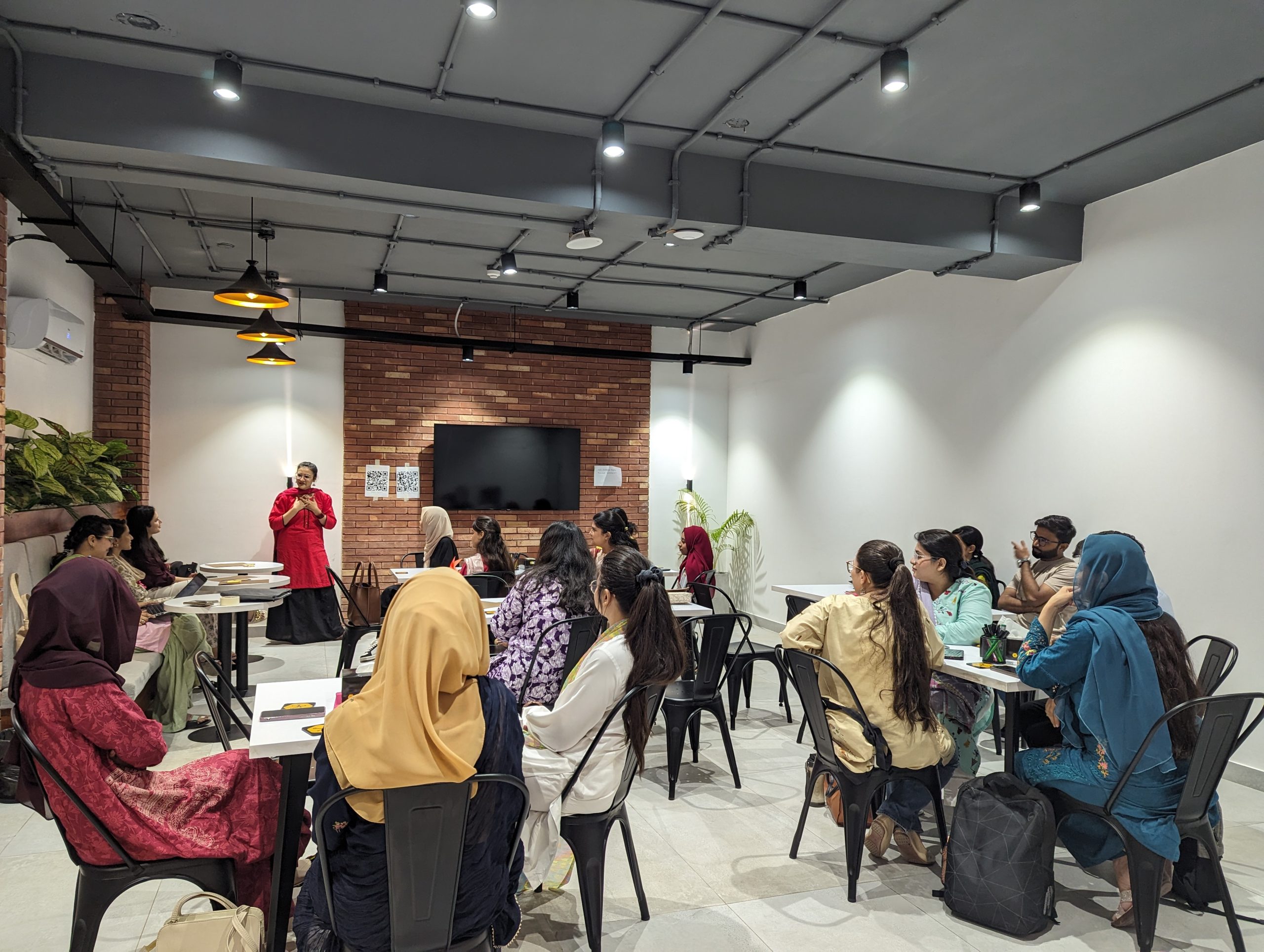
Gender-based Violence Prevention
Masculinity Manifesto
Masculinity Manifesto aims to address the intricacies of gender-based violence by engaging young boys and men in discussions on masculinities, power, and privilege to help them unlearn fault lines that can potentially lead to GBV. Baithak has designed a comprehensive curriculum and facilitator toolkit for MasMan and has trained a total of 24 facilitators from different cities in Pakistan. Our facilitators from Karachi and Hyderabad have conducted sessions with over 200 men across the two cities at Chai Dhabbas and educated them on GBV prevention through reflective activities.
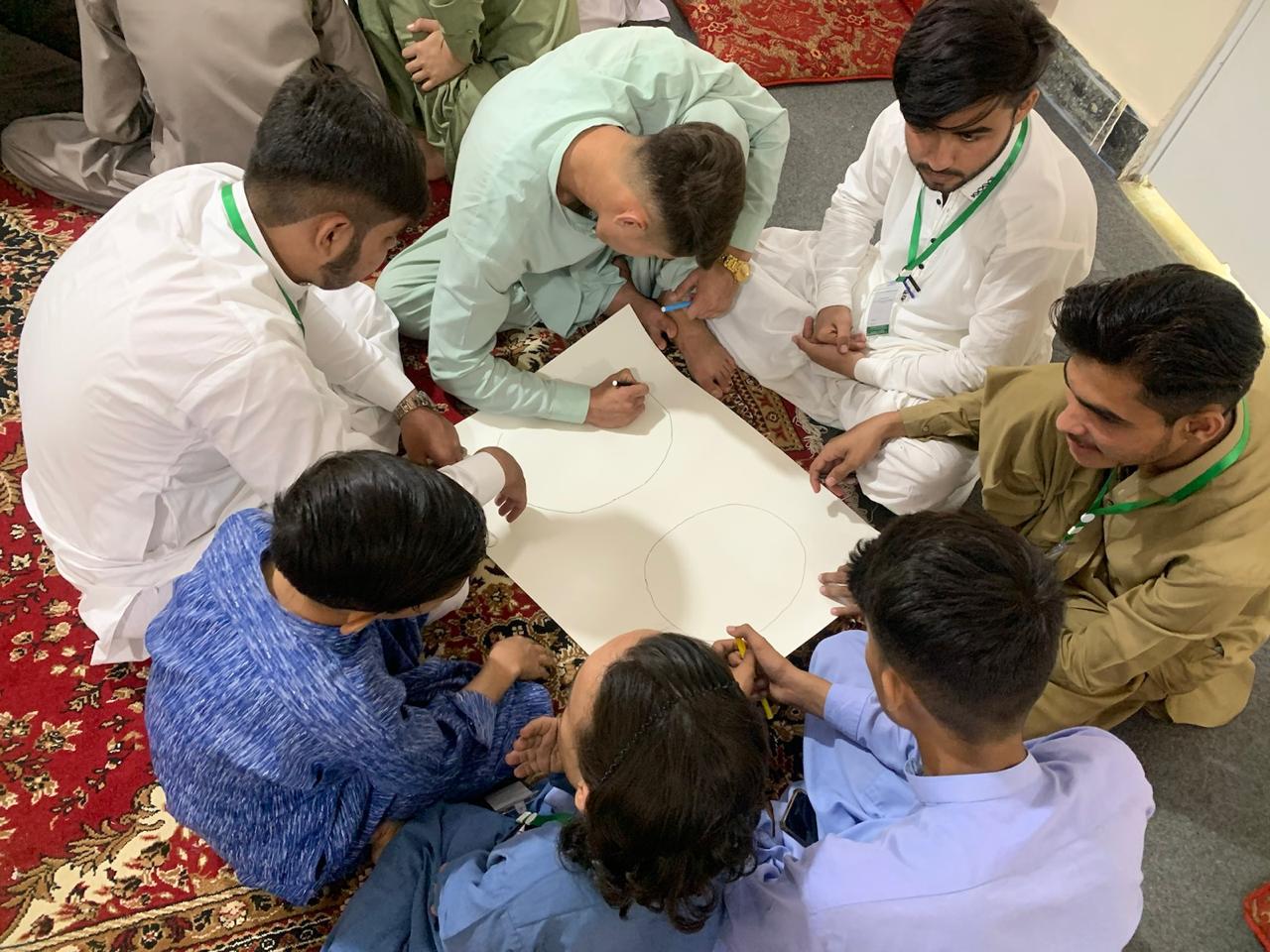
Gender Dialogues
The program is designed to offer support, safe space, and solidarity for women to come together to heal from the shared trauma of living in a society that is unsafe for women. Gender Dialogues started with the onset of 2021 femicide cases in Pakistan and opened virtual meet-ups for women to come together, talk, discuss, and process what they’re going through. Once we established a support system, we opened up the meetings for male allies to join us and discuss how they can use their privilege to create safe spaces for women.
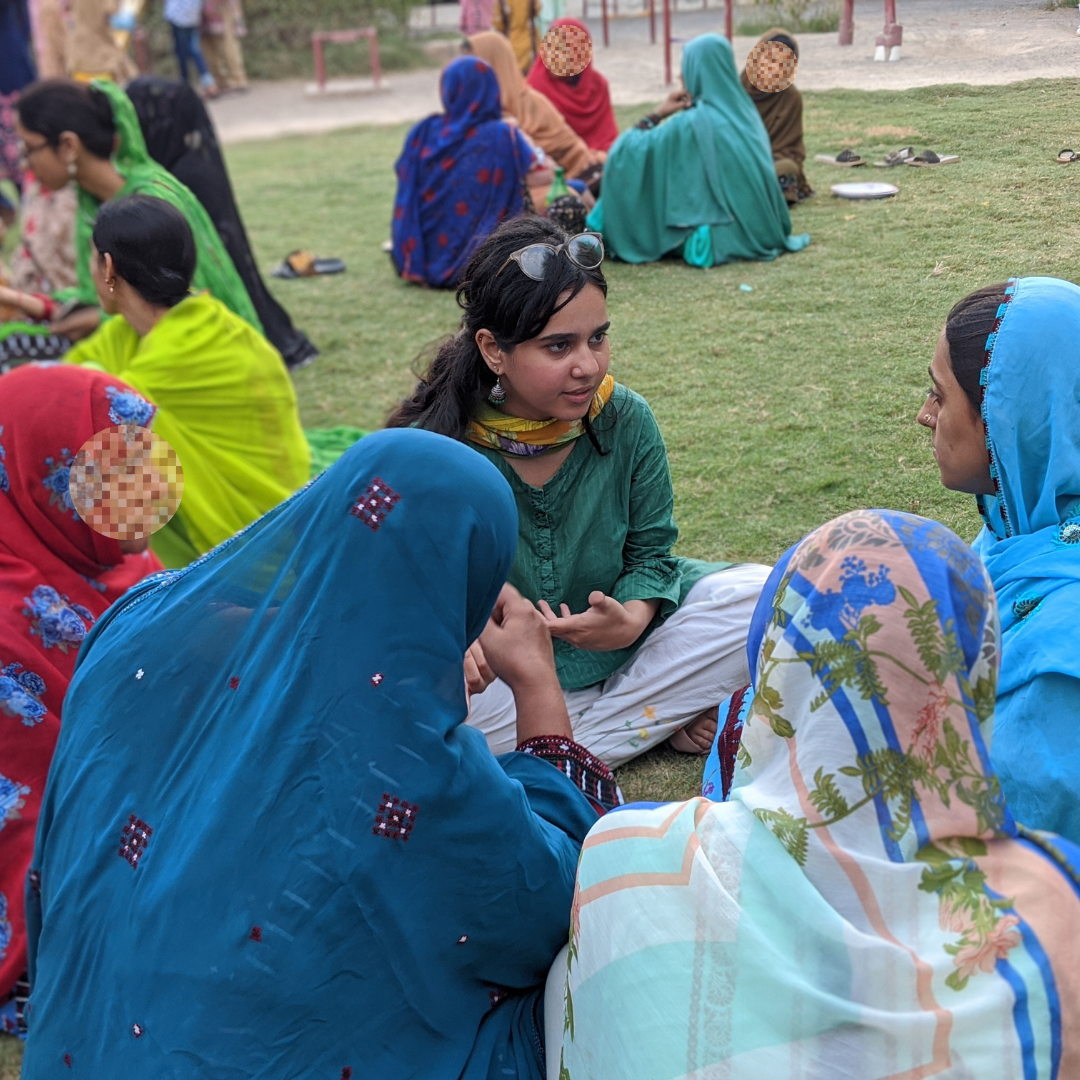
Gender and Tech
GenderNet Innovation Lab
GenderNet is focused on using technology to accelerate gender equality and was launched in 2023 in line with the UN’s priority theme. This lab strengthened the understanding, skills, and motivation of 60 young people to design, launch, and scale sustainable tech-based or tech-enabled social enterprises for gender equality and create a community of innovators. This project was executed by Baithak—Challenging Taboos and is supported by the US mission in partnership with the Pakistan US Alumni Network.
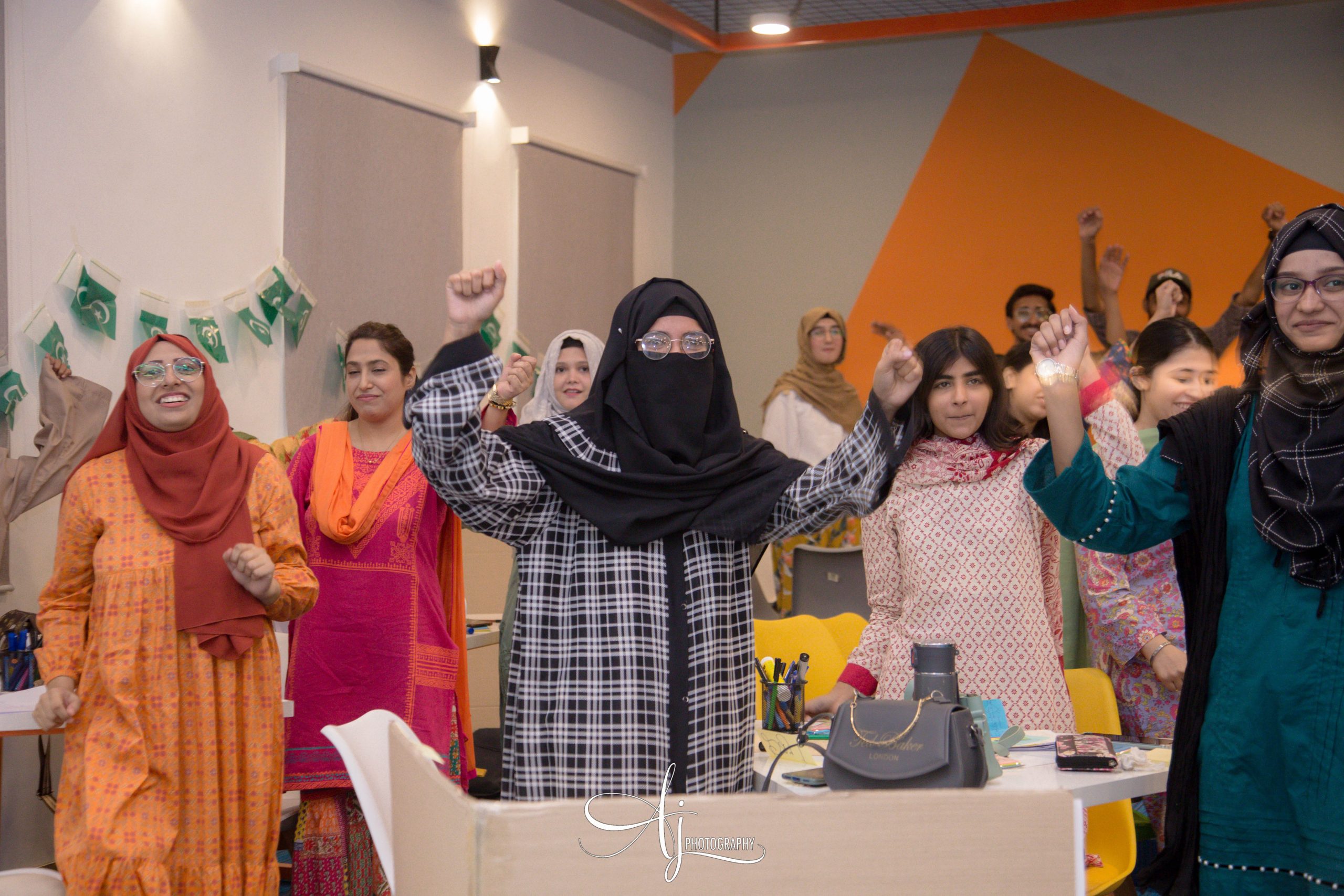
GUL – AI-Powered Voice Chat Bot
Gul is an innovative AI-powered voice assistant, specifically tailored to serve the reproductive health needs of grassroots communities in Pakistan. Fluent in local languages, Gul offers vital information and telehealth services, bridging the healthcare divide and empowering individuals with accurate, confidential, and culturally sensitive support.
